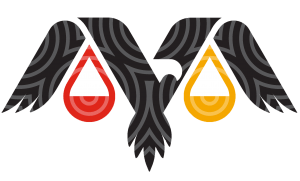People in custody deserve healthcare that matches the standard of healthcare in the community. Aboriginal and Torres Strait Islander communities have been advocating for culturally safe healthcare in custody for many years. Substandard prison healthcare remains a significant driver of Aboriginal deaths in custody.
Following a year long investigation, the Victorian Ombudsman today tabled a scathing report in Parliament on the state of healthcare provision for Aboriginal people in Victorian prisons.
This report follows on from the damning findings of the Coroners Court of Victoria in the Coronial Inquest into the passing of Veronica Marie Nelson.
The Ombudsman’s report details stories of people being unable to access programs to address drug use, having their ongoing medications abruptly stopped, and resorting to doing their own ‘surgery’.
Despite years of commitments made by the government, the Ombudsman said that they heard from Aboriginal people and organisations that “there is a disconnect between what Government policies say and the reality for people in prison”.
Common themes expressed by people in prison included:
- Delays in access to healthcare;
- Inadequate mental health support;
- Lack of trauma informed care and services to treat trauma;
- Prison officers blocking access to medical care;
- Poor attitudes of prison staff and healthcare staff towards providing healthcare.
The Ombudsman found that “[t]here is no evidence that Justice Health has a systematic approach to the collection and review of health data regarding Aboriginal people in order to assess their needs and develop appropriate responses” and that Justice Health does not adequately measure healthcare outcomes, cultural safety or quality of care.
The Ombudsman also found that “Justice health did not demonstrate a strong understanding of health from an Aboriginal perspective” and that it “lacks Aboriginal clinical governance expertise and an evidence-based understanding of culturally responsive care, limiting its ability to consider healthcare delivery through the lens of cultural safety”.
The Ombudsman made five recommendations which demonstrate the need for Aboriginal Community Controlled Organisations to be involved in both the design and oversight of prison healthcare, as well as in providing primary healthcare services in prisons. The report also demonstrates the need for independent oversight which is culturally safe and responsive to Aboriginal people.
Through our clients in custody, we hear every day about people not being able to access the medications they need, putting on lots of weight very quickly, being isolated for long periods of time, and not being treated with the dignity and respect by healthcare professionals and prison staff.
The substandard healthcare makes it hard for people in prison to focus on rehabilitation and reintegrating into society when they are released. It also means that when they are released, they require significant and complex healthcare from an already underfunded system, and ultimately it leads to premature and preventable deaths.
The Victorian Aboriginal Legal Service is proud to have participated in this report, which reflects many of our client’s stories and expresses the major failings we see every day in Victoria’s prison healthcare system.
Quotes attributable to Sarah Schwartz, Principal Managing Lawyer, Wirraway Police and Prison Accountability Practice at VALS:
“Aboriginal people have been raising these issues with Government for many, many generations. Governments have ignored Aboriginal voices for too long – it’s time to listen and to act.”
“This Ombudsman report reflects the day-to-day experiences of our clients in prisons, who still experience severe medical neglect in prison, including delays in access to healthcare, not being provided with medications which they need, and failure to adequately respond to emergency situations.”
“Failure to provide adequate healthcare is the leading cause of deaths in custody. Six Aboriginal people have died in Victoria in the last four years. We are currently representing three families of Aboriginal people who have died in prison whose Coronial Inquests cover the healthcare they were provided in prison. If the Victorian Government is truly committed to ending deaths in custody, and improving the healthcare to people in prisons, it must commit to implementing the Ombudsman’s recommendations and to transformative changes to the prison healthcare system, rather than just tinkering around the edges.”
“It is particularly horrible that the Government is not providing culturally safe services for Aboriginal and Torres Strait Islander people. It does not match their commitments to Treaty and Closing the Gap.
“There is a huge disconnect between prison policies and what our clients experience on the ground. While there has been a lot of talk from the Government, we haven’t seen the changes on the ground which are needed to prevent deaths in custody.”
“The evidence is clear – Aboriginal Community Controlled Health Organisations must be engaged to provide healthcare in prisons. Aboriginal health should be in Aboriginal hands.”
“It is a disgrace that the Victorian Government has funded a huge expansion in prison beds without funding the care and oversight that is needed to meet the duty of care and human rights obligations they have for everyone in their custody.”

